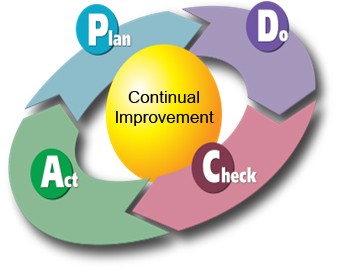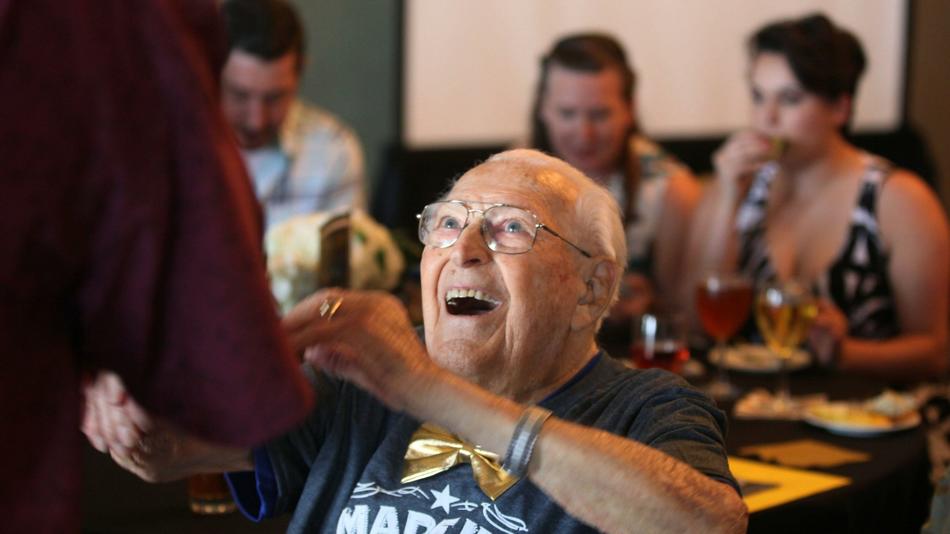Word-Of-the-Week #634: Fortunate
September 28, 2016 by Susan Clarke · Comments Off on Word-Of-the-Week #634: Fortunate
Fortunate – having unexpected good fortune; lucky.
Do you consider yourself to be a lucky person? How many times have you had good things happen that were totally unexpected? How grateful are you of your good fortune?
In Monday’s San Diego UT, columnist “I’m there for you baby” Neil Senturia’s, Luck is a powerful factor in making people rich caught my attention. I am including excerpts.
“I won the ovarian lottery.” – Warren Buffett
What the Oracle of Omaha is saying is that he won the lottery when he was born white, healthy, smart and living in America.
Right before he exited the womb, there were 6.8 billion tickets, and he was lucky enough to pick that one. And Buffett is very public about his blessing. He says, “Gratitude is a key ingredient to personal happiness.”
But this column is not about inequality or privilege or education or race or gender – it is about luck. What role does luck play in making you rich?
For this, we turn to Ben Steverman at Bloomberg Business Week. He tells the story of Robert Frank who has a heart attack on the tennis court. He lives to tell the tale and play again because there was an accident three blocks away at that time, and two ambulances arrived, and only one was needed, so when the call came, the extra ambulance reached him in three minutes. The rest is history. No double fault.
Frank, who is a professor of economics at Cornell, says, “I am alive today because of pure dumb luck.” Not sure if it is coincidence or divine intervention, Frank has now begun to study the role of luck in the creation of wealth. His new book is “Success and Luck: Good Fortune and the Myth of Meritocracy.”
Frank boldly reminds us of a bit of political heresy. He points out that Elizabeth Warren and Barack Obama were “pilloried” for suggesting that “the wealthy among us didn’t do it all themselves.” The Masters of the Universe howled.
Frank rightly points out the role of the individual, the Bill Gates, the Steve Jobs – they were talented and hardworking. But they happened to arrive at the same time that a favorable macro environment arrived.
If you bought a house in 1990, you entered a favorable macro for 15 years. Same as buying stocks in April 2009; the Dow has almost tripled since then. Think about how you met your current wife (assuming you are happily married). Twenty minutes on either side, and you probably miss each other.
Not only where you were born, but when you were born make a difference. Kids born in the fall tend to be the oldest in their class. That has a relevance that gives these children a lifelong advantage over their peers.
Sadly this week, Arnold Palmer touted as the inventor of modern golf, died. And I read this in the LA Times, “Palmer’s first professional major victory, at the 1958 Masters, serendipitously intersected with the phenomenon of television. His chiseled looks and bold – some called it reckless – style of play made him a compelling lead actor in golf’s weekly playhouse theater.”
My mother told from the time I was a little girl that I was lucky and fortunate. I believed it and I am really lucky! I’m here to tell you everyone has the opportunity to be lucky. One big component is Karma! You can’t lie, steal, cheat, or do anything dishonest if you want to be fortunate. And in case you don’t know everybody is fortunate and rich if they get to live in the US!
This week is all about being fortunate. Do you consider yourself to be lucky? Have you ever been at the right place at the right time more than once? Was it planned or was it just a coincidence? How’s your karma bank? Are there more deposits than withdrawals? Think about that!
I LOVE feedback! Join my Facebook community on my FUN-damentals Fan Page.
Word-Of-the-Week #635: Best
September 25, 2016 by Susan Clarke · Comments Off on Word-Of-the-Week #635: Best
Best – surpassing all others in excellence, achievement, or quality.
Do you want to be the best you can be? Do you want your children and grand-children to have the best life has to offer? Do you think that children today are being forced to grow up too fast?
This week’s “Why Finland has the best schools” written by William Doyle totally made sense to me and I believe our education system could benefit if they adopted the same principles.
Doyle writes, “The Harvard education professor Howard Gardner once advised Americans, “Learn from Finland, which has the most effective schools and which does just about the opposite of what we are doing in the United States.”
Following his recommendation, I enrolled my 7-year-old son in a primary school in Joensuu, Finland, which is about as far east as you can go in the European Union before you hit the guard towers of the Russian border.
OK, I wasn’t just blindly following Gardner — I had a position as a lecturer at the University of Eastern Finland for a semester. But the point is that, for five months, my wife, my son and I experienced a stunningly stress-free, and stunningly good, school system. Finland has a history of producing the highest global test scores in the Western world, as well as a trophy case full of other recent No. 1 global rankings, including most literate nation.
In Finland, children don’t receive formal academic training until the age of 7. Until then, many are in day care and learn through play, songs, games and conversation. Most children walk or bike to school, even the youngest. School hours are short and homework is generally light.
Unlike in the United States, where many schools are slashing recess, schoolchildren in Finland have a mandatory 15-minute outdoor free-play break every hour of every day. Fresh air, nature and regular physical activity breaks are considered engines of learning. According to one Finnish maxim, “There is no bad weather. Only inadequate clothing.”
One evening, I asked my son what he did for gym that day. “They sent us into the woods with a map and compass and we had to find our way out,” he said.
Finland doesn’t waste time or money on low-quality mass standardized testing. Instead, children are assessed every day, through direct observation, check-ins and quizzes by the highest-quality “personalized learning device” ever created — flesh-and-blood teachers.
In class, children are allowed to have fun, giggle and daydream from time to time. Finns put into practice the cultural mantras I heard over and over: “Let children be children,” “The work of a child is to play,” and “Children learn best through play.”
The emotional climate of the typical classroom is warm, safe, respectful and highly supportive. There are no scripted lessons and no quasi-martial requirements to walk in straight lines or sit up straight. As one Chinese student-teacher studying in Finland marveled to me, “In Chinese schools, you feel like you’re in the military. Here, you feel like you’re part of a really nice family.” She is trying to figure out how she can stay in Finland permanently.
Stay tuned…the rest of the story next week.
This week is about the best. Do you want your children and grand-children to have the best education possible? Do you believe that education is crucial to the overall development of an individual and society at large? How much better do you think children would do if they had less academic pressure and more play time?
I LOVE feedback! Join my Facebook community on my FUN-damentals Fan Page.
Word-Of-the-Week #633: Upset
September 22, 2016 by Susan Clarke · Comments Off on Word-Of-the-Week #633: Upset
Upset – mental or emotional distress.
How often do you become upset? Is your job causing you mental or emotional distress? Do you get upset about things that are under your control?
This week’s WOW features excerpts from Christine Huard’s San Diego UT article “100-year-old says life’s too short to be upset.” She writes, “Want to live to be a centenarian? A Sunset Cliffs man says all you need is the right attitude.
Zach Wall, credits his long life to a determination to stay cheerful regardless of any sorrow life brings. He’s a guy who knows a thing or two about ups and downs, having outlived his three children and wife.
Wall said, however, that when he walked away from a job giving him an ulcer 64 years ago he decided to never get upset about anything again. Since then, he’s faced each day with a smile — even when his heart was breaking.
“I made a promise to me — that nothing in this world will upset me again,” Wall said. “I’ve kept that attitude since 1952.”
“It’s not an easy thing to do,” he said. “There is no trick. It’s like quitting smoking. If you’re going to quit, quit. If you’re going to quit being upset, quit being upset.”
There’s some science behind positive mindset and living longer. Recent research done by the Scripps Translational Science Institute on the genetic secrets to healthy aging suggests that “wellderly” people like Wall share personality traits — being smart, sociable and happy — that keep them in good physical condition.
That certainly describes Wall, who answered the door of his Point Loma home with a big smile and a happy “Hello!” Dressed in slacks and a T-shirt noting he was “Made in 1916,” Wall had already read the Sunday paper and a couple of magazines, and put in 4 miles on his exercise bicycle before 10 a.m. He recently got a new pacemaker, keeps track of his heart rate, and gave up alcohol quite a while ago.
“I’m just one guy who takes good care of himself,” he said.
He does need a hand with day-to-day things, though. Wall’s grandson Chris Werdenberg, his wife, Kim, and their young son, Anthony, moved in with him about a year and a half ago to help out.
“He’s just energetic, and very genuine,” Kim Werdenberg said. “He’s very caring. He’s always concerned about how you are, how you’re doing.”
She said a healthy appetite keeps him going. “We call him ‘the Old Goat’ because he will eat anything and everything,” she said. “At dinner, he’ll eat all of his plate, and your plate, and he’s still looking for more. I think that’s what has kept him alive.”
This week is all about not getting upset. Do you maintain a positive mindset? How easy is it for you stay cheerful in times of sorrow? How would it feel to vow to never let anything upset you for the rest of your life?
I LOVE feedback! Join my Facebook community on my FUN-damentals Fan Page.
Word-Of-the-Week #632: Approval
September 14, 2016 by Susan Clarke · Comments Off on Word-Of-the-Week #632: Approval
Approval – being granted permission.
Is there any “big thing” you have always wanted to do? What’s standing between you and making that happen? Are you too cautious when it comes to change?
This week features another great New York Times article from Carl Richards AKA the Sketch Guy, “You Have Permission to Make a Big Change.” He writes, “Next month, my family and I will board a plane for New Zealand. Not for a vacation — but to live and work for the next 12 months or so. It’s spontaneous, it’s exciting, it’s new, and it’s something I’ve always wanted to do. Sounds awesome, right? Yes!
But it’s also completely terrifying. Big changes are unpredictable. They’re daunting. But that doesn’t mean you shouldn’t make them.
My family’s choice aligns with a simple theory of the economist and co-author of “Freakonomics” Steven D. Levitt: People who aren’t sure about uprooting their lives probably should. “As a basic rule of thumb, people are too cautious when it comes to making a change,” he told a reporter for The Atlantic.
He tested this theory in his latest study. Mr. Levitt asked participants who were undecided about a major decision to flip a virtual coin. Heads, they go ahead with the change. Tails, things stay the same.
Based on the results of tossing over 20,000 virtual coins, the study found that people were happier after making a major change, whether they did it because the coin forced their hand or because they decided on their own.
Knowing this, you would think that my own life-changing move to New Zealand would become much easier. But it hasn’t. And the reason, more than anything else, is the voice inside my head that keeps screaming at me. “People just don’t do this sort of thing,” it yells. “Name one person you know that’s done this,” it demands.
What the little voice is doing is something that I bet many people can relate to.  He’s looking for permission. My biggest fears right now are not dealing with the bureaucratic nightmares of moving to a new country, though there are plenty of those.
He’s looking for permission. My biggest fears right now are not dealing with the bureaucratic nightmares of moving to a new country, though there are plenty of those.
Instead, my big concern has to do with what right I have to do this thing I’ve always wanted to do. Seeking approval and external validation is part of the human experience, but when it comes to making a big life change, they can be hard to find. People expect you to stay how you are, to maintain the status quo, to stay the course. And if you get bogged down looking for that affirmation to make a change, you may never make it.
To me, the most interesting part of Mr. Levitt’s experiment was that a simple coin toss was permission enough. Perhaps it doesn’t matter where the permission comes from. Maybe we’re all secretly dying for anyone (or coin) to just come along and say, “Go for it. You make that change.”
Well, you know what? I hereby proclaim myself the president of permission granting. And by all of the power vested in me, I grant everyone who reads this column the permission to do that thing. Whatever it is, you now have permission to do it.
This week, take one major change you’re wanting to make and figure out if the only thing stopping you is waiting for permission. Be brutally honest with yourself. Force yourself to identify what’s standing between you and making that change. And if you find that it’s permission you’re searching for — then look no further.
This week is all about approval. What one major change do you want to make? Could the only thing stopping you be your need for approval and validation? How would it feel to toss a coin and come up heads?
I LOVE feedback! Join my Facebook community on my FUN-damentals Fan Page.
Word-Of-the-Week #631: Improvement
September 7, 2016 by Susan Clarke · Comments Off on Word-Of-the-Week #631: Improvement
Improvement – a change for the better; progress in development.
Have you ever offered suggestions for ways to improve processes at work? Do you have any ideas on how your company could save money and reduce costs? How persistent are you when faced with obstacles or difficulties in getting something done?
This week is the follow up to last week’s LA Times article by Joyce E.A. Russell, “The best way to advance your career: Take initiative.” We continue on with,
“Other ways you can show initiative:
- Be on the lookout for how to improve what you are doing. As Victor Hugo said, “Initiative is doing the right thing without being told.”
- Offer suggestions for ways to improve processes at work. Volunteer to follow through with your ideas.
- Offer ideas for how the firm can save money and reduce costs.
- Come prepared. Show that you did the reading to be well-informed before you meet with a client or offer a suggestion. In those slow periods at work, read up on things, take training classes or look for ways to get more informed about the firm and its businesses.
- Show persistence when faced with obstacles or difficulties in getting something done. A person who shows initiative rarely has a defeatist attitude.
- Check out Bob Nelson’s book, “1001 Ways to Take Initiative at Work.”
 In addition to showing initiative at work, you may also be asked about how you have shown initiative in a job interview. Be prepared to answer this question.
In addition to showing initiative at work, you may also be asked about how you have shown initiative in a job interview. Be prepared to answer this question.
First, think about what employers are trying to learn about you with this question. They really want to know if you are able to identify opportunities to make improvements and then followed up on those, if you came up with your own ideas and were able to implement them, and what the end results were.
I’ve known some students who have done incredibly well answering these questions because they were very active in their programs by creating new clubs or programs when they saw needs or gaps. The same goes for employees who spotted opportunities to improve customer relations and then came up with ideas and shared them with management.
If you are one of those employees who can show initiative on the job, you will clearly stand out. As Mary Kay Ash, founder of Mary Kay Cosmetics, once said, “There are three types of people in this world: those who make things happen, those who watch things happen and those who wonder what happened.”
Which type of person will your colleagues and bosses say you are?
And this just in! My great nephew Colin wanted to be a leader at school but did not see a class office he wanted to run for. So he took initiative and went to the teachers and staff of his school and said, “I want to create a new office, Student Chairman of Academics.” They said yes. He ran and won. (unopposed) Colin thinks outside the box. Pretty cool for a 12 year-old, huh?
This week’s focus is on improvement. Do you come to work prepared and well-informed? Do you look for ways on how to improve what you are doing? Are you able to identify opportunities to make improvements and then follow up on them? Have you found a need for creating a new program like Colin?
I LOVE feedback! Join my Facebook community on my FUN-damentals Fan Page.




